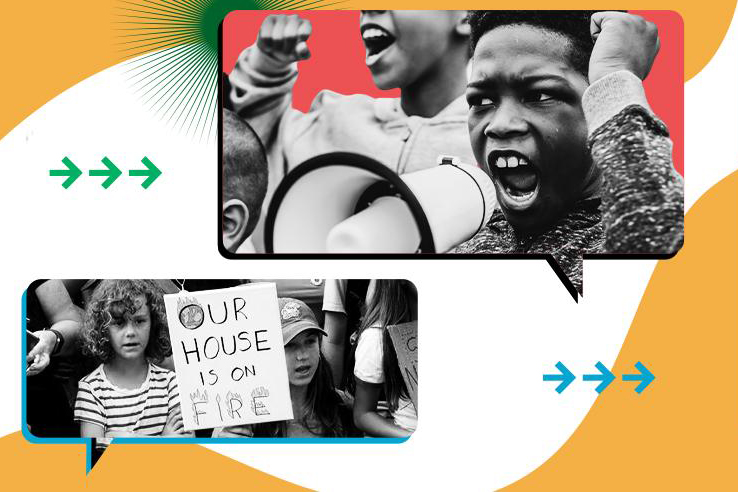The Bahá’í Faith, a relatively nascent world religion, emphasizes the intrinsic value of education, particularly in the formative years of childhood. The commemoration of the UN International Day of Families serves as an opportune moment to reflect on the interconnected nature of education, family dynamics, and the collective advancement of society. The teachings of Bahá’u’lláh provide profound insights into the significance of educating children within the familial structure, elucidating the notion that the essentiality of education transcends mere academic knowledge; it encompasses moral, spiritual, and social development.
Recognizing the family as the fundamental unit of society, Bahá’í teachings advocate for the nurturing of a harmonious family environment. Children raised in loving, supportive households are more likely to thrive and contribute positively to society. The principle of unity in diversity is central to Bahá’í beliefs, illuminating the richness that varies backgrounds and perspectives bring into familial and educational contexts. It is through the diverse tapestry of experiences and ideas that children learn to embrace inclusivity and develop empathy towards others.
The UN International Day of Families, celebrated annually, underscores the role of families in fostering and nurturing the next generation. This celebration encourages a deep consideration of the myriad ways in which families can and do influence the prospects of children. Bahá’í teachings align with this philosophy, emphasizing that the family is the primary educator. Parents and guardians are viewed not simply as caretakers but as crucial facilitators of learning, guiding their offspring towards knowledge, morality, and spiritual awareness. The obligation of parents in the educational journey of their children is immeasurable; thus, nurturing a culture of learning within the family is paramount.
Education from a Bahá’í perspective is not confined to conventional academic pursuits. It encompasses the moral and spiritual development necessary for individuals to acquire virtues such as honesty, integrity, and compassion. These virtues are essential not just for personal development but are also foundational for the construction of a peaceful and just society. Consequently, the Bahá’í community advocates that education should stimulate creativity and critical thinking, encouraging children to engage with the world around them and become agents of positive change.
This multidimensional approach to education integrates both intellectual growth and character formation, fostering well-rounded individuals who recognize their responsibilities to their families and wider communities. In nurturing a holistic educational framework, families are directly contributing to societal progression. Moreover, Bahá’í teachings assert that while formal education is crucial, informal learning experiences, such as family discussions and community involvement, are equally valuable in shaping a child’s worldview.
A relevant aspect of these teachings is the emphasis on consultation as a means to resolve differences and foster understanding within the family unit. The consultative process, rooted in mutual respect and open dialogue, teaches children critical life skills. They learn to appreciate differing viewpoints and arrive at consensus, cultivating essential virtues of patience, tolerance, and coherence. This aligns impeccably with the aims of the UN International Day of Families, which posits that strong familial relations are indispensable in nurturing environments for children.
The pursuit of education also extends into the realm of gender equality, a principle of paramount importance in both Bahá’í teachings and contemporary global standards. Equal access to education for all children, regardless of gender, is seen as vital for the holistic development of societies. Bahá’í texts illustrate that empowered women contribute profoundly to the nurturing and education of future generations, thus reinforcing the idea that gender disparity in education impedes societal progress. Families, as the primary education stakeholders, must embrace equality as a core tenet in their teachings and practices.
Education within the context of family should also address the socio-emotional dimensions essential to child development. As families learn to prioritize emotional intelligence, children are better equipped to understand and manage their emotions, allowing for healthier interpersonal relationships. The Bahá’í concept of the oneness of humanity reinforces the importance of fostering connections beyond the family circle, advocating for inclusive communities where children can develop social responsibility and global citizenship. This understanding emphasizes the role of families in cultivating a sense of interconnectedness and belonging among individuals.
Moreover, the rapid emergence of technological advancement alongside globalization poses both opportunities and challenges for the education of children. Families are tasked with navigating this ever-evolving landscape by integrating the benefits of technology while also emphasizing critical thinking and discernment. Bahá’í teachings advocate for a balanced approach, melding the advantages of modernity with established moral principles. This guides children to responsibly engage with technology and harness it as a cornerstone for learning rather than mere entertainment.
As we contemplate the message of the UN International Day of Families, it becomes increasingly clear that education is a shared responsibility. A collaborative approach involving parents, extended family members, and the community is essential for the comprehensive development of children. In this regard, the Bahá’í teachings illuminate paths to creating nurturing environments conducive to education, advocating for families to be spaces of learning, growth, and unconditional love.
In conclusion, Bahá’í teachings encapsulate the profound role families play in the education and moral upbringing of children. The International Day of Families serves as a clarion call to affirm and renew commitment towards creating educational environments that prioritize holistic development through love, mutual respect, and collaboration. This holistic vision of education prepares children not only to excel individually but also to contribute to a harmonious society that values unity in diversity and spiritual growth. Ultimately, instilling these values in the hearts and minds of future generations will ensure a better world for all.
